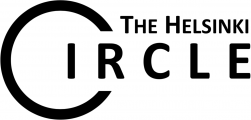In philosophy verificationism seems to often enter the fray when one or more thinkers come to realize that the field has become stale and sterile – old ideas show no way forward, no way of settling controversies. The old ways of doing things have, the verificationist thinks, gotten us stuck. Verificationism, then, is an attempt to get rid of bad old ideas and to give a roadmap for avoiding getting stuck the same way later on. I will take the opportunity here to sketch out the spirit of verificationism, and to recommend the reader to take an open minded look to see if verificationist ideas might just be “glamorous, exciting and exactly what the age demands” (Rorty 1993: 198).
In her book Verificationism: Its History and Prospects (1995), C. J. Misak takes as a main part of the verificationist spirit the idea that “A belief with no connection to experience is spurious” (Misak 1995: vii). This will obviously closely align the verificationist with empiricism, and indeed many verificationists have been empiricists of one kind or another – although the two are in no way coextensive as pragmatist philosophers such as Charles Sanders Peirce and Richard Rorty are not empiricists, but still embrace verificationism. (I am merely pointing out that the aims of empiricists and the aims of verificationists are often quite close to one another.) Another major part of the verificationist spirit is the demand to not block the way to inquiry. Here some might complain: any kind of verificationist restriction on methods of inquiry will block some lines of thought. Thus such a criterion, precisely, blocks inquiry! But, the verificationist will answer, what is inquiry without any constraints? It is no inquiry at all! To distinguish inquiry form, say, hat-making one needs to have criteria for what counts as inquiry (and millinery for that matter). A third part is the demand for our concepts to be applicable, to serve a purpose in our inquiries. Of note here, is that the verificationist demand is not a demand for total verification, but rather a demand that a claim makes a practical difference.
So the spirit of verificationism can then be summed up as follows: Claims should be connected to (even if minutely) to experience, the methods of inquiry need to have constraints, and concepts used should be applicable. This, I hope, does not look at all as insidious as the opponents of verificationists have made it sound. (And note that falsificationist views are just a subset of verificationism.)
Some quotes to flesh things out:
[Verificationist view of] truth is […] divested of its absolute […] character; it is made relative and reduced to human terms, but the concept of truth becomes applicable! And what purpose could be served by a concept of truth which is inapplicable?
Hans Hahn, quoted in Mizak 1995: 89, emphasis added.
[If] nothing can be deduced from [a] theory […] this stamps the theory as one of those to which Auguste Comte applied the epithet metaphysical, that is unverifiable. To accept it as sufficient would be to block the road to inquiry.
Charles Sanders Peirce, quoted in Mizak 1995: 92, emphasis added.
[Anti-verificationist] intuitions are giving rise to too much sterile controversy, too many fancy theories which tack epicycles […] onto epicycles, too much speculation […] for an as-yet-unimaginable breakthrough before we can hope to reach the light, too much defeatist guff about ‘the limits of science.’ In short, we want new [verificationist] intuitions because the old ones haven’t been getting us anywhere.
Richard Rorty 1993: 199.
So, why should one adopt the verificationist spirit? It depends on what one wishes to accomplish. If one is content playing idle word games with one’s esteemed colleagues, one might do well to stick to one’s non-verificationist ways. But if one desires to understand the world, and to change it, one does well to a method of inquiry that can accomplish exactly that: allows us to make useful distinctions and conceptualisations. Further, verificationism is opposed to revelation, dogma, superstition, and unconsidered appeals to tradition – things often opposed to social change for the better. So, if one wishes for a change for the better – for social justice, as it were – one should consider opting for the verificationist way of doing things. Dogmatism and traditions crumble before the might of the questions “how do you justify your claim?”, “how would things be different if you were wrong?” and their ilk. Come join us. We have cookies!
References:
Misak, C. J. (1995): Verificationism: Its History and Prospects, London: Routledge.
Rorty, Richard (1993): Holisim, Intrinsicality, and the Ambition of Trancendence, in Bo Dahlbom (ed.) Dennett and his Critics, Oxford: Blackwell, pp. 184–202.
NB: what I have written in these blog posts should not be considered a programmatic declaration of the official view of the Helsinki Circle, but rather as the musings and opinions of a single member.
